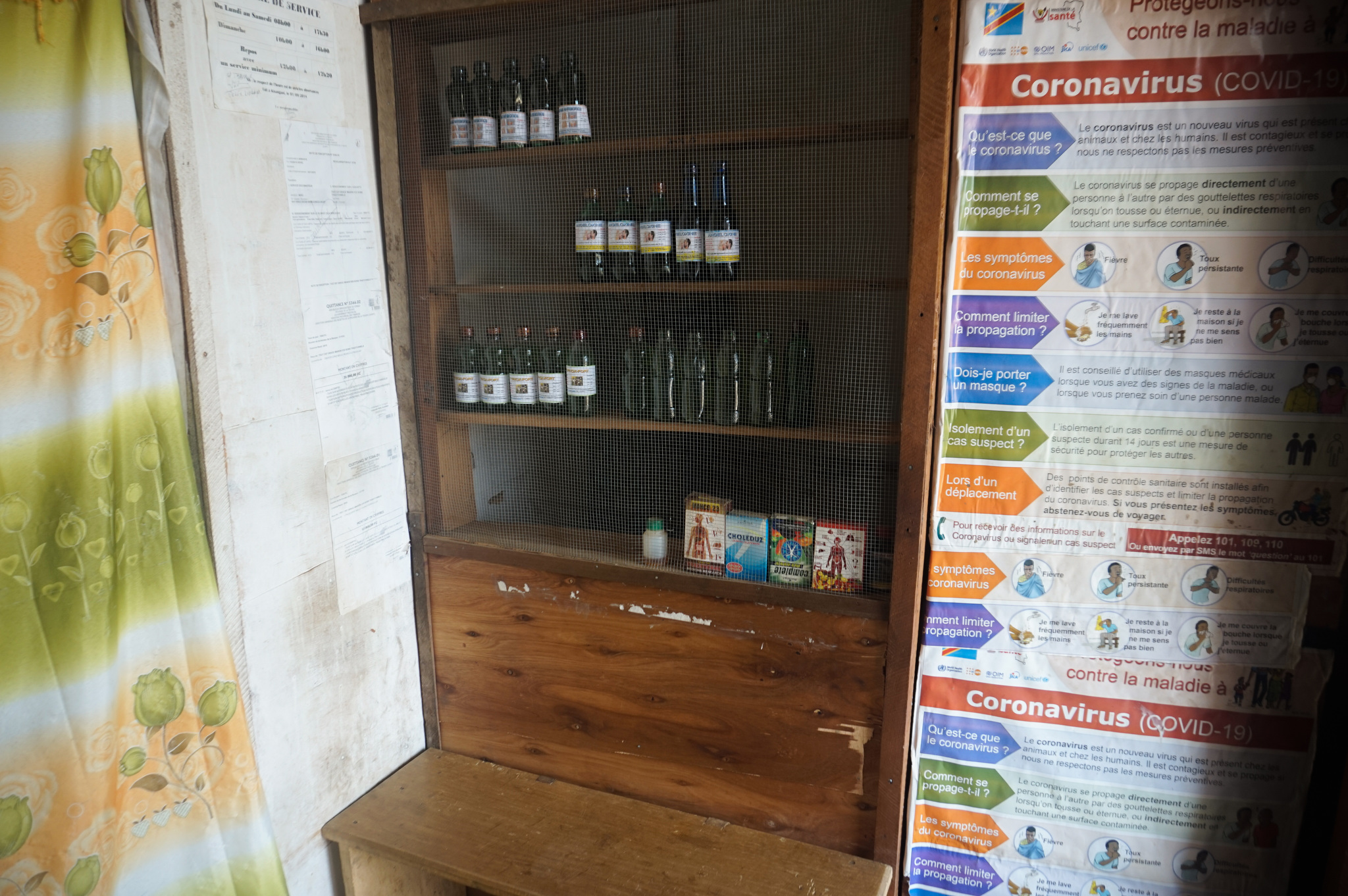
FRANÇOISE MBUYI MUTOMBO, GPJ DEMOCRATIC REPUBLIC OF CONGO
Some traditional healers say their plant-based treatments can protect people from COVID-19, although no evidence supports their claims.
KISANGANI, DEMOCRATIC REPUBLIC OF CONGO — Every morning for 15 days, Alpha Mbula drank a glass of bitter red juice, a blend of leaves and red apples that was prescribed by a traditional healer. He hoped the concoction would keep the coronavirus at bay. Instead, it triggered a life-threatening heart condition.
Authorities in Kisangani, a city in northern DRC, are not only fighting the pandemic but a growing number of fraudulent practitioners who claim their untested plant-based treatments are the best defense against COVID-19.
A few days after completing his course from an unlicensed healer, Mbula, 37, got a severe stomach ache. He rushed to the hospital and in September was diagnosed with cardiac toxicity, a condition in which the heart muscle is damaged by a toxin. Two weeks of emergency care saved the trader’s life but he remains on medication, unable to return to work.
Back home in eastern Kisangani, Mbula describes his illness as an awakening. “I can never go to a traditional healer again,” he says. “I don’t trust them anymore, even if they say they are experts.”
But large numbers of people still turn to traditional healers rather than medical doctors when they fall sick. Many healers advise their patients against COVID-19 vaccinations, despite the vast body of evidence showing vaccines protect people from the disease.
Traditional medicine in itself is “not a bad thing,” says Jean Louis Alaso, mayor of Kisangani, acknowledging its ancient and global history in treating ailments. In DRC, traditional practitioners refer to people who use the healing properties of plants, animals or minerals, and they coexist with medically trained doctors. The World Health Organization also has expressed its support for traditional medicine where the benefits and safety are scientifically proven.
But Alaso, like the WHO, strongly cautions against using unproven traditional medicine as a preventative treatment or cure for the deadly coronavirus that emerged in December 2019.
“The evil for our country, and particularly the city of Kisangani, is that there are people everywhere in the streets that pretend to heal all diseases with plants,” the mayor says. “These traditional practitioners are wrongly telling the population they can cure COVID-19 with plants from the forest.”
The scale of the problem has prompted authorities to launch a crackdown against unregulated traditional practitioners.
Only 13 clinics are licensed to administer traditional medicine in Kisangani, says Augustin Salumu, a council official who identifies rogue operators. But since the COVID-19 outbreak, his team has found more than 60 centers working “clandestinely” in houses across the city. Unregistered healers also are operating on the street. Since the probe began last year, 26 illegal clinics have been shut down, he says.
The penalty for operating a traditional medicine practice without a license starts at 500,000 Congolese francs ($250) and comes with a warning. A second offense carries a higher fine of $1,000 plus a three-month prison sentence. But the practice continues to grow.
“We are struggling to put an end to it,” says Luc Alungu Walisaya, the provincial health minister, estimating that at least 65% of Kisangani’s population consults traditional healers. A major challenge, he says, is the “changing strategies” employed by healers, with many now treating patients at their own homes to avoid detection.
Another obstacle is that COVID-19 misinformation isn’t limited to unlicensed healers. Even those registered by the government and formally trained in traditional medicine advocate an anti-vaccine stance.
In a one-room house in Motumbe district, central Kisangani, six patients wait for a consultation with Franck Kilombo, who has been working as a licensed traditional healer for seven years.
Kilombo says patients visit him for all matters, including cancer, high blood pressure, infertility and, increasingly, the prevention of COVID-19.
“We traditional practitioners know that plants and the leaves from the forest are very effective to prevent COVID-19, something that modern doctors ignore,” he says. Kilombo adds that he discourages patients from vaccination as he thinks it’s a money-making scheme for the government.
Instead, he has been prescribing patients his own remedies to prevent the coronavirus, including the crushed leaves of palm, avocado and mango, which he turns into a juice.
“In the hospital, filling out the doctor’s consultation form will cost you $10. That’s without counting the sum of a medical examination. With me, a traditional practitioner, 7,000 Congolese francs [$3.50] and I will give you a consultation and tell you which disease you suffer from,” he says.
But none of Kilombo’s treatments to prevent COVID-19 have been proven to work.
Health authorities say they are developing a new plan to combat misinformation, including measures to punish traditional practitioners — registered or unregistered — who advise people against vaccination, as well as any broadcasters that carry their unchecked views.
False rumors about the COVID-19 vaccine have stymied the vaccination drive in Kisangani and DRC as a whole. The city received 1,000 doses of the vaccine, but less than 20 people got shots, Alungu says. Even if more had come, he says, a shortage of vaccines would have hampered the effort after the original batch expired. By October, the vaccination rollout that began in Kisangani in July had ceased as the city waited for new supplies.
Mbula says he opposed vaccination before his recent near-fatal experience. Traditional healers “work to make money, not treat illnesses,” he says. “Now I will be the first to get vaccinated when they are available again.”
Françoise Mbuyi Mutombo is a Global Press Journal reporter based in Kisangani, Democratic Republic of Congo.
TRANSLATION NOTE
Megan Spada, GPJ, translated this article from French.








